Contribute to Truffle's fundraiser
On March 15th 2023, one of the cats currently in the charity’s care, Truffle, celebrated his first birthday with his foster carers, Liz and Les.
You might think this an unremarkable milestone in the life of a cat, something that usually passes by unnoticed. For Truffle however, there is nothing unremarkable about it. For, just eight months prior, he was a lethargic and underweight kitten being given a diagnosis that has long been synonymous with certain death: FIP or Feline Infectious Peritonitis.
That Truffle is alive, happy and healthy on his first birthday is possible only through a combination of factors: recent advances in veterinary medicine, the painstaking love and care of Liz and Les, and Catcuddles’ commitment to never give up on a cat, no matter the cost and work involved in offering them a chance at happiness.
Please consider helping us with these ongoing costs by donating.
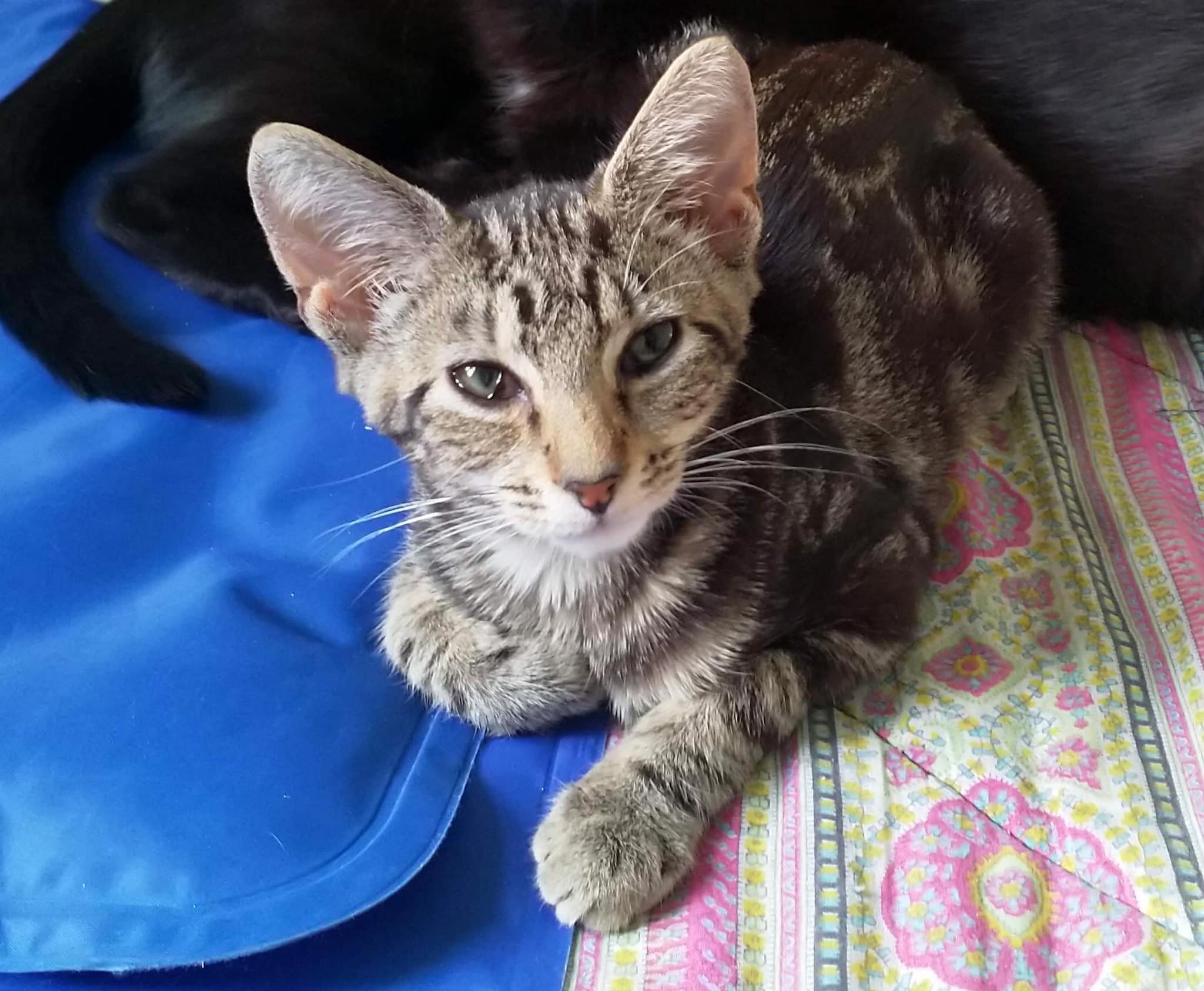
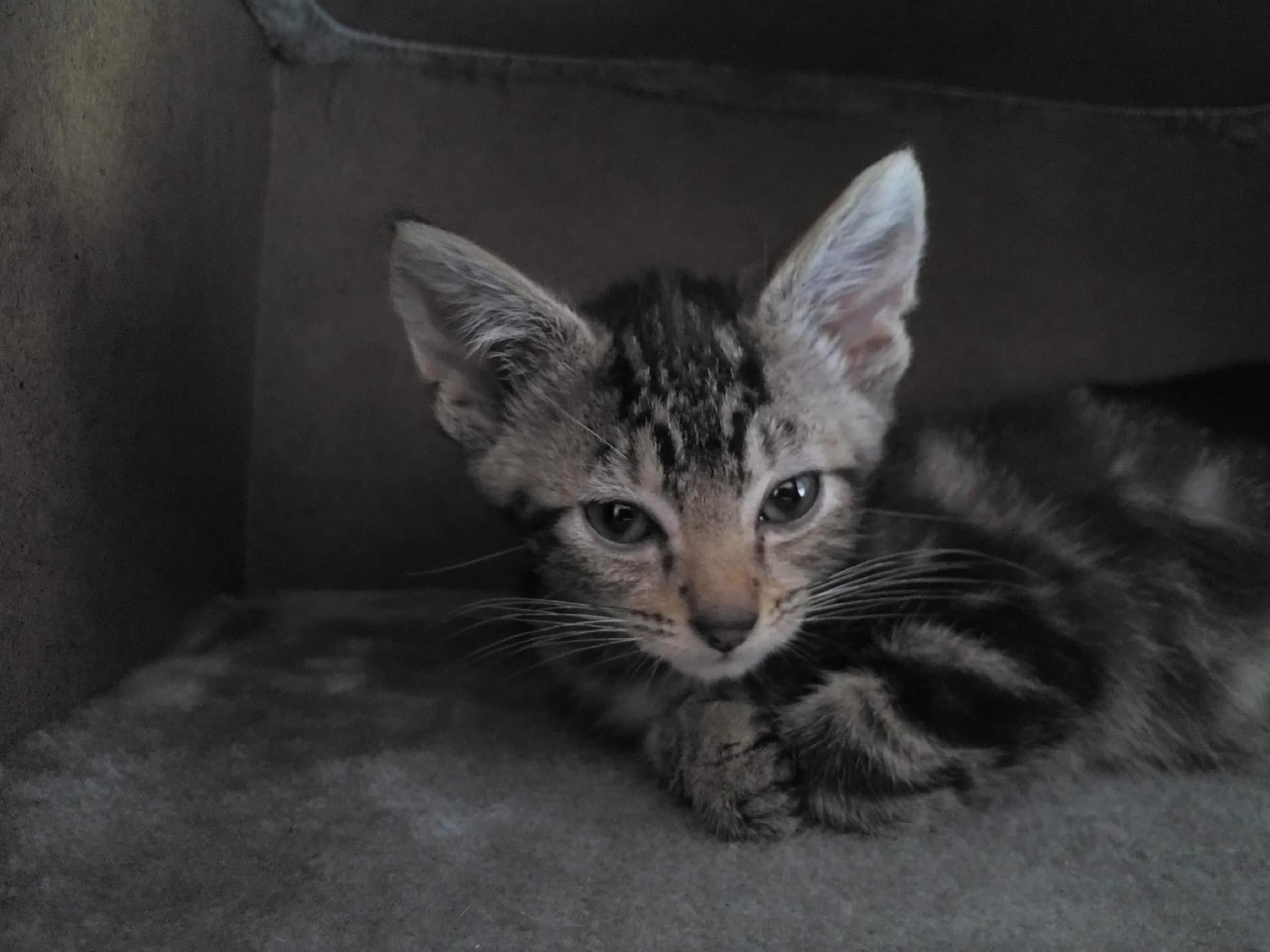
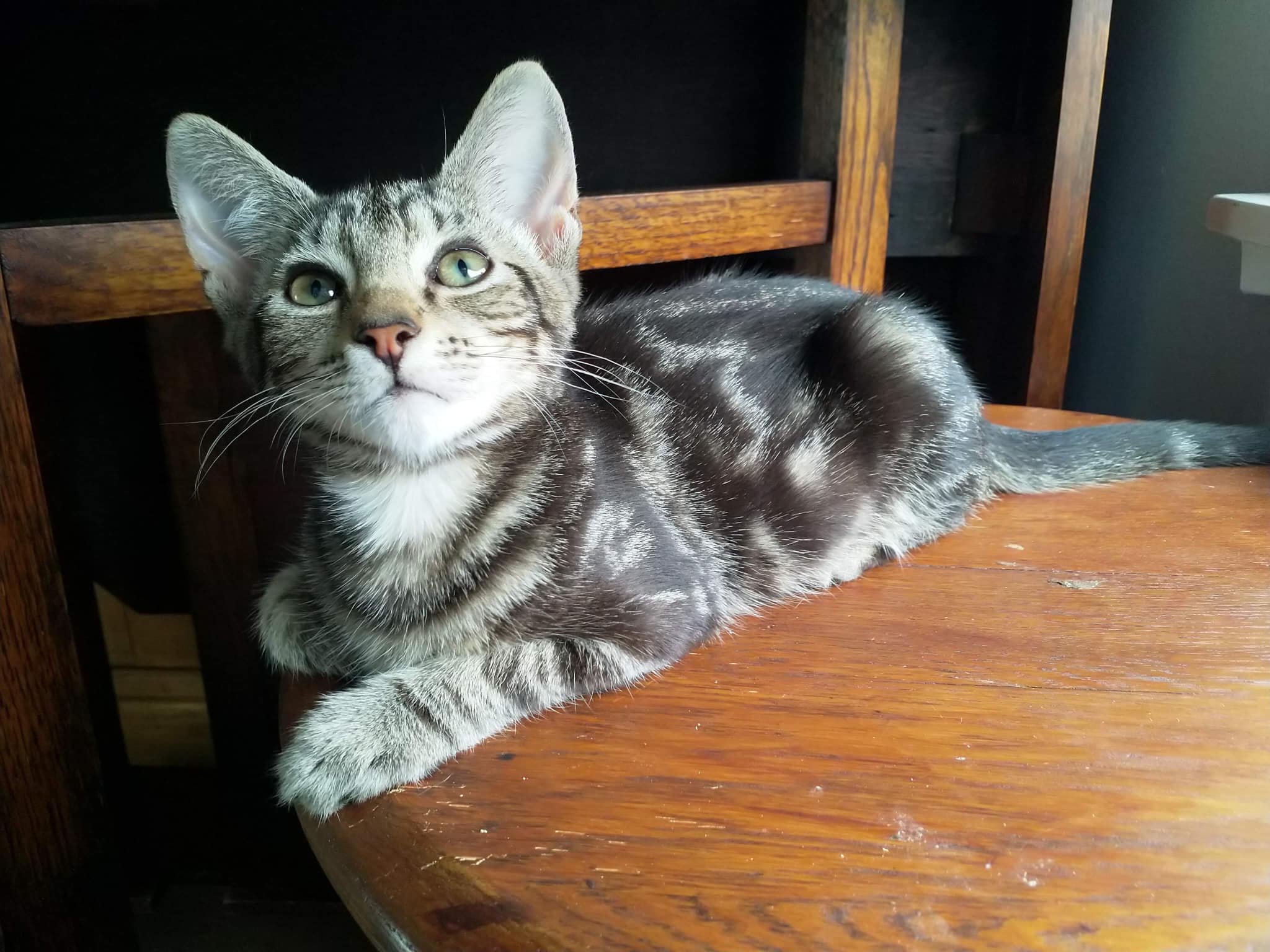
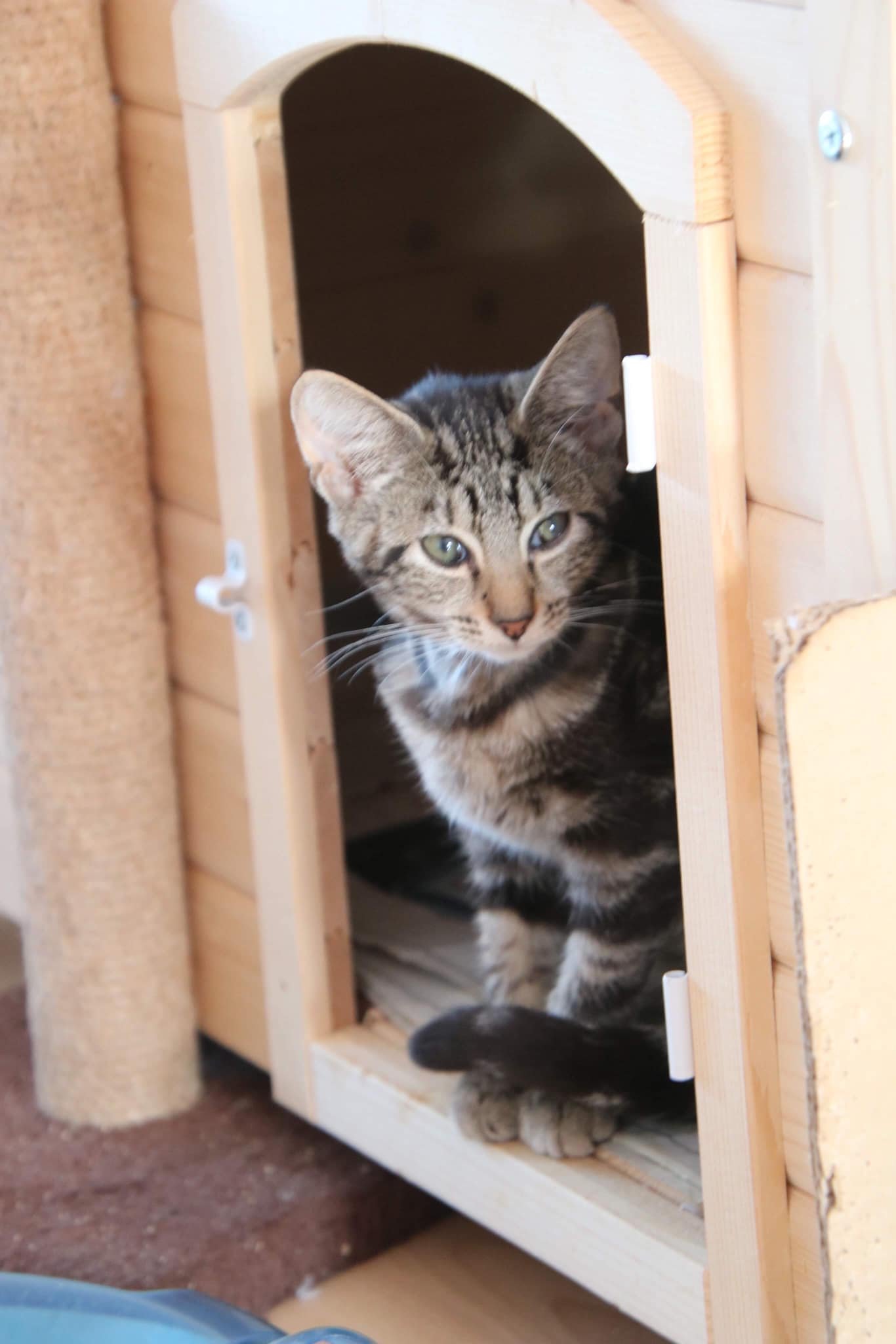
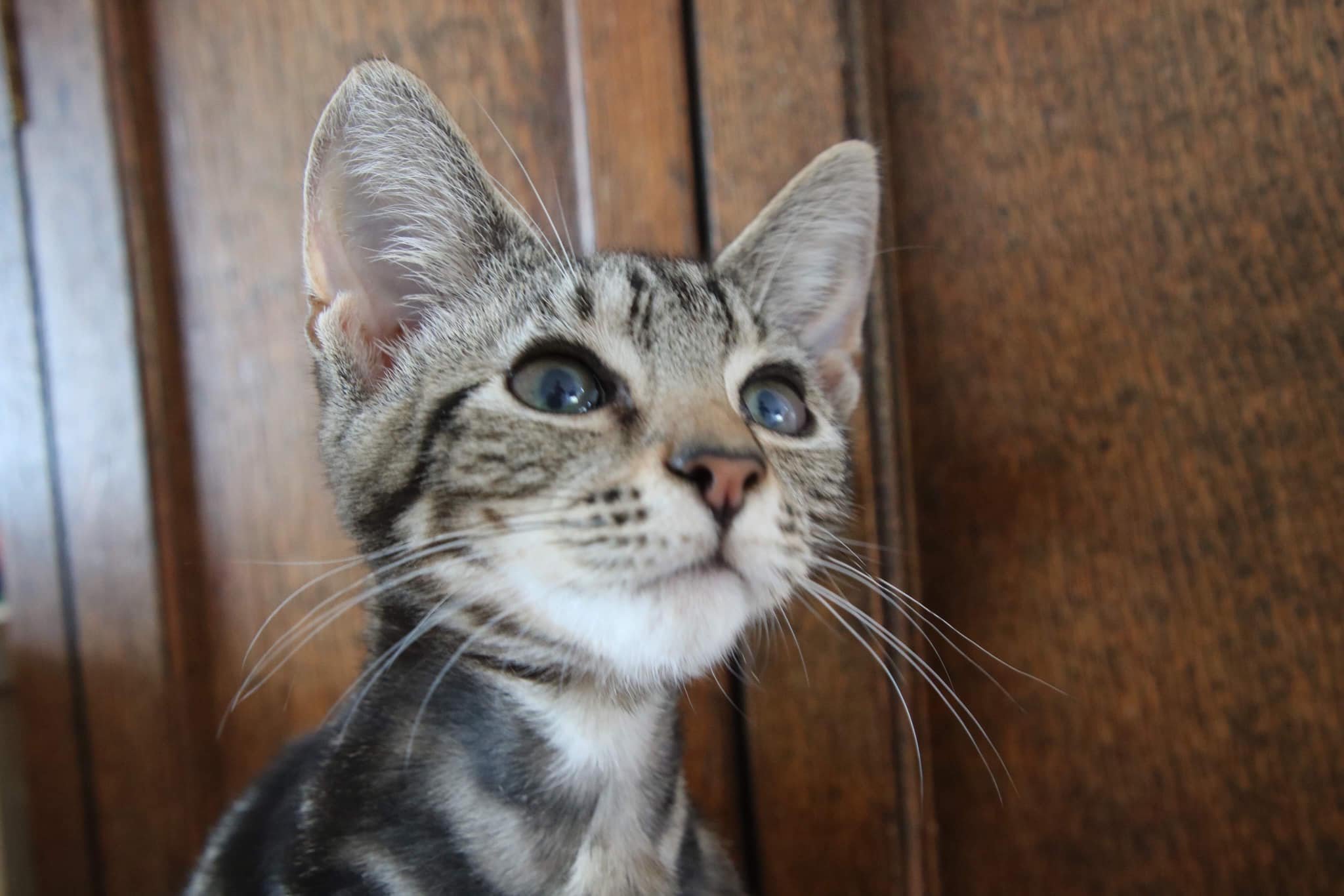
Truffle’s Story
Truffle arrived at Catcuddles in May 2022 at around ten weeks of age, along with his mum and six siblings. Since he weighed considerably more than his litter-mates, it was all the more noticeable when his appetite and weight began to plunge throughout June and July, and he became increasingly listless.
A vet visit revealed a small skin tag at the back of Truffle’s throat and a high temperature. He began a course of antibiotics. When this led to no improvement, it was followed by a second course. Still, Truffle did not improve. Fears began to simmer, and were confirmed at the end of August 2022: Truffle had FIP.
FIP is caused by a Coronavirus with no relation to Covid-19. Whilst it’s common for cats to be exposed to Coronaviruses, particularly in multi-cat households, for a small percentage of infected felines, these viruses can lead to the serious illness known as FIP, the symptoms of which vary widely, from digestive upset to respiratory issues. FIP is often divided into two categories; ‘wet’, associated with the accumulation of fluid in the abdomen or chest; and ‘dry’.
Truffle was diagnosed with the latter - often considered the less aggressive form of FIP.
For many years, FIP was believed fatal, with no known treatments; affected cats could only be made comfortable throughout the onslaught of symptoms, and usually survived mere months following diagnosis. From 2021 onwards, however, research showing the effectiveness of anti-viral medications Remedesivir and GS-441524 began to emerge, although these drugs were still not widely available outside of the US. A black market for them even developed in some countries.
Fortunately for this otherwise unfortunate kitten, at the time of Truffle’s diagnosis, these revolutionary, albeit expensive, treatments had at last reached UK shores. At the end of August 2022, Truffle started an 84-day course of Remedesivir and GS-441524. Like so many cat owners fighting this awful disease, the use of these new treatments meant sailing in uncharted waters for the Catcuddles Team. We were filled with hope, yet unsure what to expect.
To our dismay, Truffle experienced an initial improvement, followed by an almost immediate decline when the medication course ended. At this point, he virtually stopped eating all together, subsisting almost entirely on ‘Feringa Milky Snacks’, a treat with a creamy filling, even as his foster carers poured all of their energy into encouraging him to eat; using appetite stimulants, offering him every kind of food imaginable and hand-feeding him.
It was not until a second course of medication began in December that Truffle once again showed signs of sustained and significant improvement, gradually showing interest in food again. By March 2022, his first birthday, he was an active, curious and energetic young cat, with a healthy appetite and an amusing habit of interrupting Les’ Zoom meetings.
Truffle has recently had a blood test that will indicate whether he is free of FIP. Whatever this test reveals and whatever the future holds for him, Truffle’s story is not that of the many FIP cats that have so tragically succumbed to this disease in the past. For where there is hope of a cure, there are reasons to keep fighting; and we won’t stop fighting for Truffle.
*** Please remember that hope has not come without cost! The charity has spent almost £5000 on Truffle’s FIP treatment so far, in addition to the cost of his neutering, vaccinations, microchipping, and care and upkeep for one year. We don’t regret a penny, but it is nonetheless a daunting undertaking for a small charity funded entirely by donations. Consider donating towards Truffle’s ongoing costs here.
Find out more about FIP from the Royal Veterinary College (RVC).
